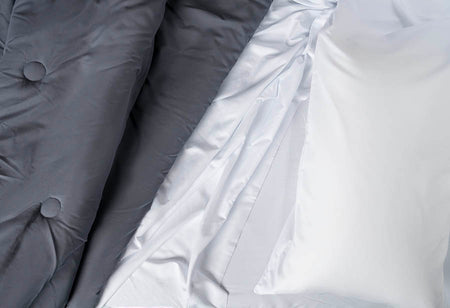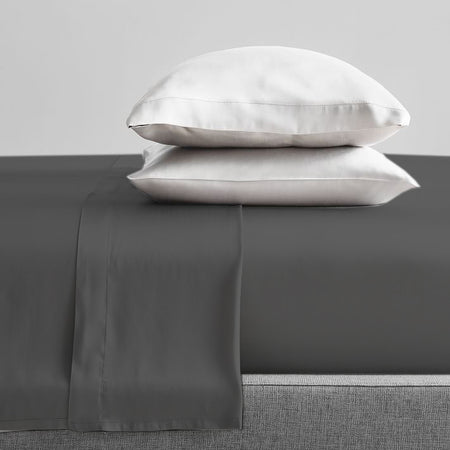It’s anyone’s guess whether or not we’re finally going to abandon a well-meaning but brutal practice of sleep deprivation. On March 15th of this year, the US Senate successfully passed the Sunshine Protection Act to eliminate DST (Daylight Savings Time) starting January 2023. Unfortunately, the House of Representatives has yet to move it forward. I believe the consensus is that they’d like to sleep on it.
But, wouldn’t we all enjoy a little more sleep?

Ben Franklin Started This Whole Thing As A Joke
Don’t blame our farmers. They had nothing to do with it! Back when Ben Franklin served as our envoy to France (1776 - 1785), he wrote a piece of satire that included ridiculous suggestions like firing off cannons at dawn to awaken people and taxing window shutters so that citizens would be discouraged from closing them to sleep in.
At the time, Ben came up with the rhyme, "early to bed and early to rise makes a man healthy, wealthy, and wise.” Since then, DST has been adopted on and off by different states, as well as by many nations around the world. Here in the US, you might need a flow chart to track all the changes in this practice. This is especially true when you consider how time zones are affected and the fact that not all states comply.

The Original Idea - Why Was Daylight Savings Time Created
When DST was first adopted nationally in 1918, the goal was to save energy used for lighting and heating by having people wake up an hour earlier. And it worked, sort of. At the time, no one thought about the effect waking up an hour earlier would have on our sleep or our circadian rhythms. All but a few scientists hadn’t even heard of it back then.
More than two hundred years later, we finally realize how important maintaining a consistent circadian rhythm is to sleep and, in turn, how crucial sleep is to our physical and emotional well-being.
If You Think Jet Lag Is Bad . . .
Jet lag affects thousands of people every day, and it is recognized worldwide as the cause of accidents, mishaps, and poor performance across just about every activity and occupation. According to the CDC (Centers For Disease Control And Prevention), jet lag can affect your mood, your ability to concentrate, and your physical and mental performance.
Now imagine the whole country being jet-lagged because of Daylight Saving Time. Thanks, Ben. Thanks for all the chaos.

According to Harvard Medical School, a multi-year study tested how long-term changes in our circadian rhythms (the processes at work in our 24-hour internal clock) affected metabolism and body weight. When results were compared with similar studies, the conclusions pointed toward how disrupted circadian rhythms negatively affect many crucial functions like hormone levels, blood pressure, and heart rate in the human body.
Why Motor Vehicle Accidents Increase In The Week Following DST
Generally speaking, driving around with less natural light isn’t as safe, and this fact alone can increase the number of accidents. But that’s not all. When practically the entire country loses an hour of sleep, alertness, stress, and other physiological issues play a part.
It can take weeks before our bodies get used to a new routine. According to many experts, the number of motor vehicle accidents goes up by 6% in the week following DST. The overall effect of disrupting our sleep schedule nationwide is more difficult to track in other areas, but sleep experts are confident the results are not positive.
What You Can Do About The Problem
Of course, you can always contact your local representative in Congress and urge them to move forward with the Sunshine Protection Act and hope for the best. Thankfully, there are a number of things you can do on your own to make sure you get all the sleep you need.
- Don’t consume alcohol prior to going to bed. A cocktail or two before bedtime may seem like it helps you avoid trouble falling asleep, but the quality of your sleep will be poor as a result.
- Avoid late-night snacks. Cereal commercials in the evening present a delicious temptation that’s difficult to resist. However, keep in mind that having to digest a late meal may disrupt the deep sleep your body and mind need.
- Reduce the amount of screen time before bed. Television, laptop, notepads, and smartphones give off blue light that has been shown to interrupt our natural sleep processes that helps our bodies wind down before bed.
- Write your worries away. If there’s something on your mind or you have some important things to remember for the next day, writing them down well before you go to bed will help your mind relax while you sleep. The last thing you want is a restless night worrying about the next day.
- Room darkening shades. Many people find the darker the room, the more soundly they sleep.
- Lower the temperature. Our bodies naturally cool down during sleep. Try lowering the thermostat a degree or two so that your bedroom stays comfortably cool.
- Exercise. Even a 20-minute, normal-pace walk after dinner can help you sleep better through the night.
- Lightening up on the spices. Everyone has their favorite spicy foods, but sometimes, this can rob us of the restful sleep we need.
- Watch an episode of I Love Lucy. A funny and familiar episode of your favorite tv show to cap off your evening entertainment may not sound exciting, but that’s the point. Ending your content intake with something positive can make it easier to calm your mind before bed.
- Check your sleep hygiene. There are a number of different factors that affect the duration and the quality of your sleep, and you may not even be aware of them. Here's a checklist you can use to learn more about the quality of your sleep.

Your Mattress Makes a Difference
As the years go by, our sleep needs change, and so should our mattresses. If it’s been a while since you’ve checked out what’s available, get in touch with your local sleep expert. You’ll be surprised at the new features built into the latest advances in mattress technology.






















